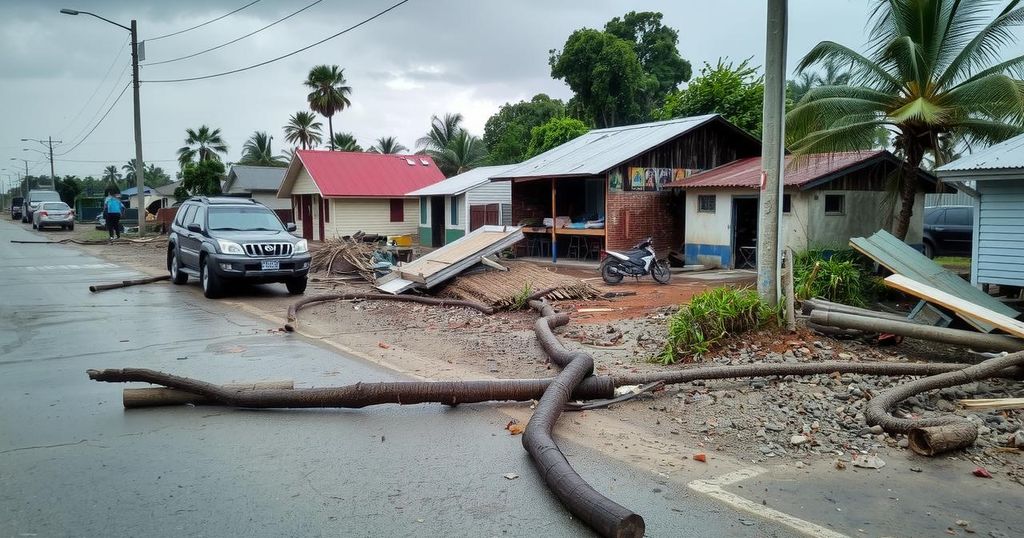Cyclone Chido’s Devastation in Mozambique: Death Toll Rises to 75

Cyclone Chido has led to a death toll of 75 in Mozambique, nearly doubling earlier reports, as communities in Cabo Delgado struggle with the aftermath of extensive destruction exacerbated by ongoing conflict. Rescue efforts are challenged by damage to infrastructure, with many residents displaced by both violence and severe weather.
The aftermath of Cyclone Chido in Mozambique has resulted in a tragic rise in the death toll, now reported at 75, nearly doubling previous estimates. The cyclone struck Cabo Delgado, a province already grappling with an ongoing insurgency. Rescue efforts have uncovered extensive devastation, particularly in rural areas such as Mecufi, where infrastructure has been severely compromised. According to the National Institute for Natural Disasters, the storm has left at least 69 fatalities in Cabo Delgado and injured 740 individuals. Emergency responders faced significant challenges, navigating washed-out roads to reach affected communities.
Eyewitness accounts describe the scene of widespread destruction. Isadora Zoni, a United Nations refugee agency officer, remarked on the desolation in Mecufi, asserting, “What you see is utter destruction; everything’s been flattened.” The cyclone’s impact is exacerbated by Mozambique’s status as one of the world’s poorest nations, frequently battered by climate-related disasters. Images from the devastation depict mud homes obliterated, wooden structures reduced to debris, and critical facilities, such as a maternity health clinic, rendered inoperable.
The conflict in Cabo Delgado had already displaced massive populations, with an estimated 10,000 individuals in temporary tents affected by the recent cyclone. Insurgency-driven displacements now intertwine with the effects of severe weather, compounding the suffering of communities. Cyclone Chido, with wind speeds averaging 115 miles per hour, also impacted the French archipelago Mayotte, which recorded a death toll of at least 31, with fears of more fatalities. Moving inland, the cyclone dissipated over Zimbabwe but may herald the onset of a destructive rainy season historically associated with cyclones and severe flooding.
Cyclone Chido follows previous tragedies, including Tropical Cyclone Freddy which left significant casualties in 2022. The recurrent nature of these disasters underscores a broader challenge faced by Mozambique, where approximately 140,000 individuals have been displaced in recent years due to extreme weather events.
Cyclone Chido made landfall in northern Mozambique’s Cabo Delgado province, an area already affected by a prolonged insurgency. This region has faced significant humanitarian crises, making the impact of natural disasters particularly severe. Mozambique is recognized as one of the poorest nations, consistently exposed to climate change, leading to frequent destructive storms, especially during the southern Indian Ocean cyclone season. The history of similar events enhances the gravity of the current situation, as communities grapple with multiple layers of crisis.
In summary, the devastation wrought by Cyclone Chido has led to a marked increase in the death toll and extensive damage in Mozambique, particularly within the Cabo Delgado region, which was already suffering from ongoing conflict. With rescue efforts ongoing, the situation remains dire, necessitating urgent humanitarian assistance as the nation braces for potentially more severe weather in the coming months.
Original Source: www.nytimes.com







